Drawing Courage from Our Kids—Confronting Systemic Racism in Rockdale County
Print This Post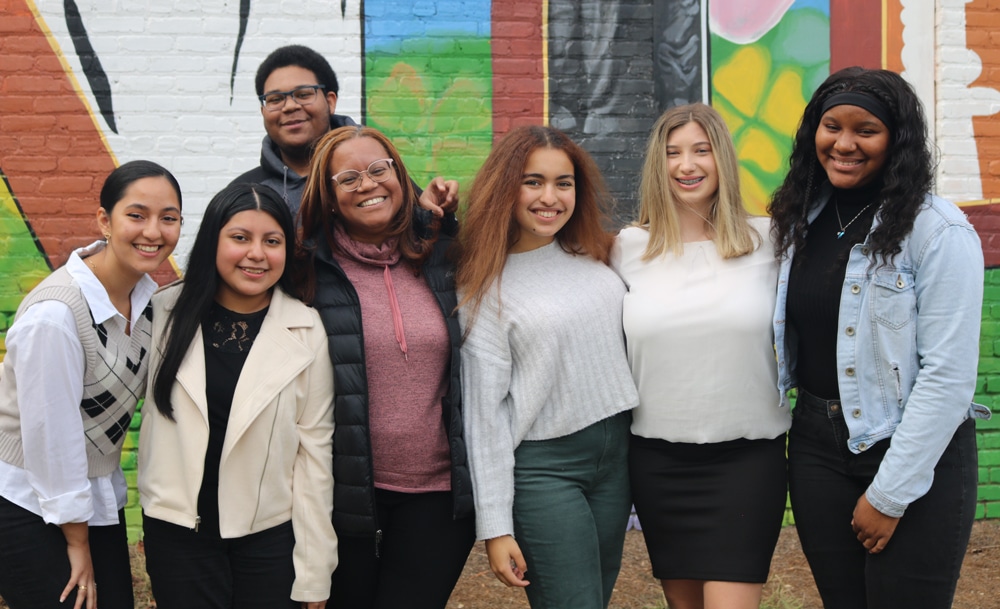
by Bill Valladares
When Courageous Conversations Rockdale was looking for trailblazers to form their youth pilot, they sent out a call to all public and private schools in the county. The diverse community leaders that assembled to promote and embrace cultural diversity weren’t searching for student leaders at the top of their class with the highest test scores. They wanted kids who struggled in school, dropped out of school, were considering dropping out, or were involved in gang activity.
“We wanted a group that would engage in conversations from a variety of perspectives around race, ethnicity, culture, diversity, and inclusion to close the gaps that divide us,” said Rebeca Gibbons, founder and director of Unidos Latino Association and a Courageous Conversations Rockdale member. “We wanted the conversations to be that real.”
Not in Rockdale
Rockdale, the second smallest county in Georgia, is home to a diverse and growing community with a population of 90,000 residents made up of 51% black or African American, 34% white, 10% identifying as Hispanic or Latino, 2% Asian, and 2% multi-racial.
Kevin and Nareene Taffe, founders of Premier Medical Careers in Conyers, paved the way for Courageous Conversations Rockdale in response to the tragic murders of George Floyd and Ahmaud Arbery. They wanted to initiate a dialogue about these injustices and to address the issue of systemic racism in their community.
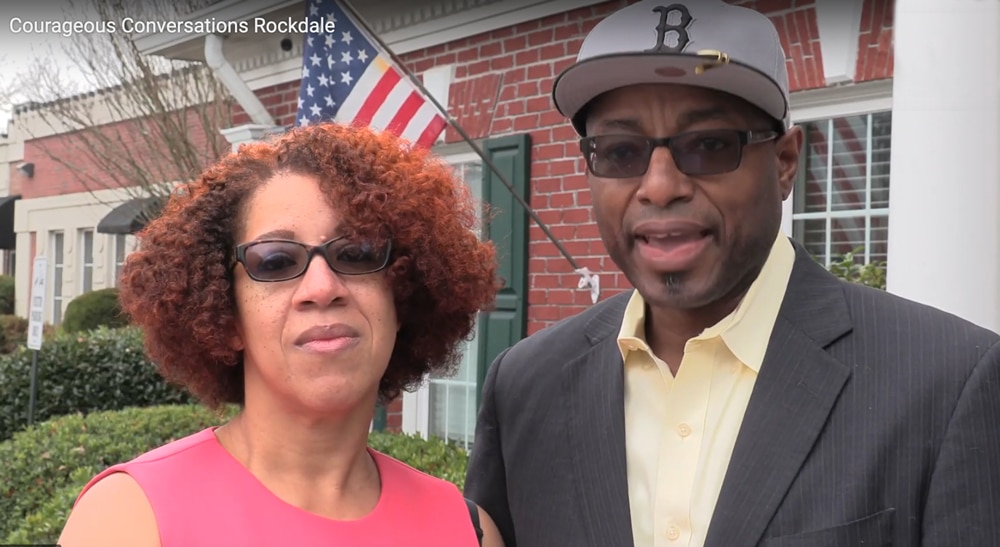
Nareene and Kevin Taffe
The Taffes began by inviting the faith community to join them for 30 days of reflection and prayer, and then convened a group of educators, elected officials, lawyers, pastors, mental and physical health professionals, community leaders, and corporate professionals around a common goal and vision rooted in love and acceptance. Their invitation was simple, yet resolute: “Are you willing to be courageous?”
The Power of Perspective
Michael Hutcheson, executive director of the Rockdale Coalition for Children and Families, the Georgia Family Connection county Collaborative, accepted the invitation and joined Courageous Conversations Rockdale despite not initially seeing any specific incidents of systemic racism in Rockdale.
“When Michael and I had a one-on-one conversation, I shared personal experiences in my role as director of the only Latino organization in Rockdale County to be able to expand Unidos Latino Association and to be accepted in this county,” said Gibbons. “I offered him some examples that changed his perspective. I give Michael credit for allowing me to challenge him, and for listening to me and testing his beliefs. Now he’s working through the Rotary, and Family Connection has become a huge part of Courageous Conversations Rockdale. Courageous conversations work.”
Beyond this work, Hutcheson is working with his Collaborative to build a more diverse board.
“I realized I had blind spots related to understanding the larger context of racism,” said Hutcheson. “I sometimes feel that those who look like me are hesitant to do the hard work of looking inside themselves to see hidden biases and seek to see things from the perspectives of others who are different. While I struggled to identify or define specific incidents of racism in our community, I came to understand that even asking the question about whether racism existed here was in and of itself ignorance on my part. There were things I needed to hear and learn from others so we could work together with more empathy and compassion.”
Enter Gen Z
One of Rockdale’s greatest strengths, according to Hutcheson, is exceptional cooperation and collaboration among community members. One of the county’s greatest challenges: an increase of violence among youth in their schools.
Courageous Conversations Rockdale initiated the youth pilot to provide a safe space for high school students to find their voice, uncover personal and systemic biases that prevent all people from reaching their potential, and gain a broader awareness and appreciation of cultural diversity.
The goal was for the youth to eventually go into the schools and communities and branch out into small groups. With support from Courageous Conversations Rockdale leaders, the youth would lead other groups and conversations to bring about change. Twenty young people accepted the call and were determined to clear all unanticipated hurdles to even get the pilot going.
“We wanted to give the youth a platform to share their thoughts and experiences in a nonjudgmental format and encourage them to embrace diversity,” said Hutcheson. “I learned from them that once they could trust us, they were freer with their opinions. Youth are looking for opportunities to build relationships with adults they trust.”
Courageous Conversations Rockdale launched the youth pilot in the middle of the COVID lockdown. The community also was dealing with racial tension when monuments in the county that represented enslavement were being removed. The youth met via Zoom with the group’s leaders for six weeks.
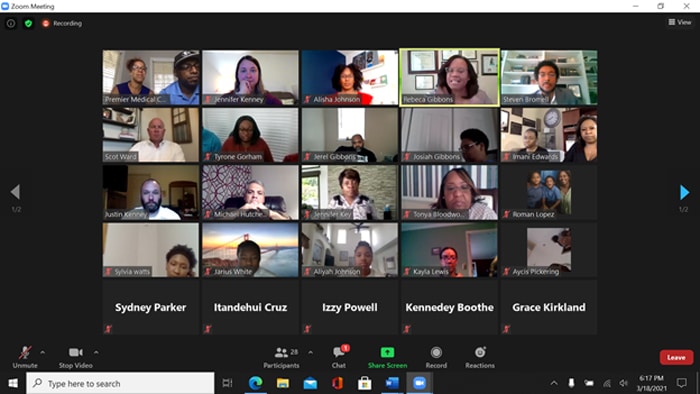
“The outcome was a beautiful expression of diversity and inclusion that exceeded our expectations,” said Gibbons. “The young people were braver than the adults in their real conversations, addressing issues head on that the adults couldn’t. When the adults didn’t agree on certain topics, the tension was intense. The kids didn’t do that. Even when they didn’t agree they always, without being prompted, began with, ‘Oh, I like what you said, but here’s my idea.’”
The youth took on topics like stereotypes and racism that society, cultural norms, and unjust systems perpetuate; the injustice of the George Floyd and Ahmaud Arbery, and Breonna Taylor murders; providing better physical, mental, and emotional training for police; the devastation of Black Wall Street in 1921; equality vs. equity; and privilege.
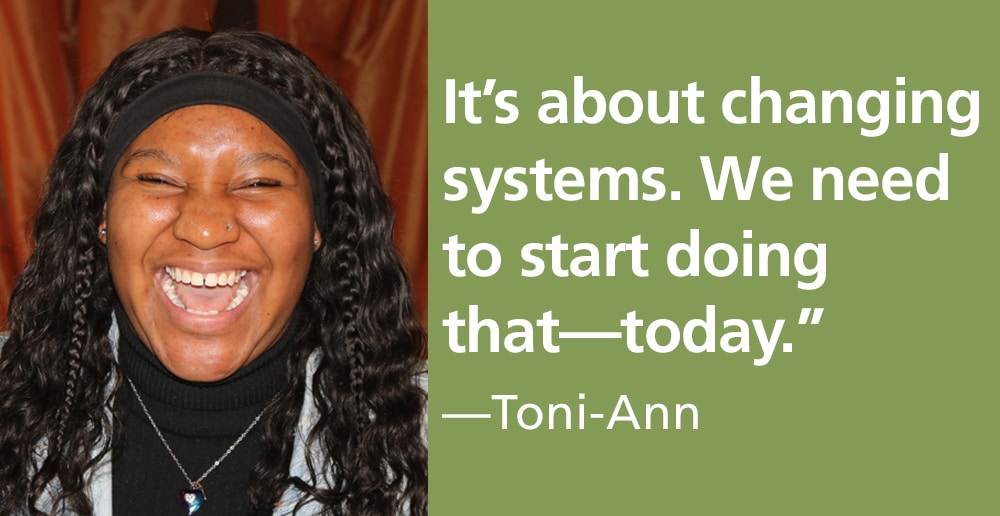
“Education and government play a role in breaking the cycle of racism in our country and in our state,” said Grace, a junior at Rockdale Magnet School for Science and Technology. “We need to inform children in school from a young age what actually happened in history, so we don’t repeat the same mistakes, to welcome a new generation that’s more open-minded.”
Toni-Ann, a senior at Heritage High School, agrees. “It’s sad that we have to wait to get to the college level to start understanding more about different communities and races,” she said. “Yes, we’re taught in school about slavery, but we only hear about the same few people, like Martin Luther King. We don’t dig deep into the struggles that have extended through time and that we experience now. It’s about changing systems. We need to start doing that—today.”
“And we all need to vote to get our voices heard, to get people into power who are going to bring diversity and inclusion,” Grace continued. “We can’t change things by talking about it and not doing anything.”
Taking on the Mantle
Gen Z’s core characteristics make this the generation most likely to deliver the most significant blow to systemic racism. A significant characteristic is Gen Z’s racial diversity. The Annie E. Casey Foundation’s What Are the Core Characteristics of Generation Z? points out that Gen Z will be the last generation that is predominantly white. While a slight majority of Gen Z‑ers (52%) is white, 25% is Hispanic, 14% is black, and 4% is Asian.
“It’s this generation, Gen Z, that has to take on the mantle,” said Gibbons. “Promoting and embracing diversity and inclusion has to not only be important to us. It has to be important to the youth, who are our future.”
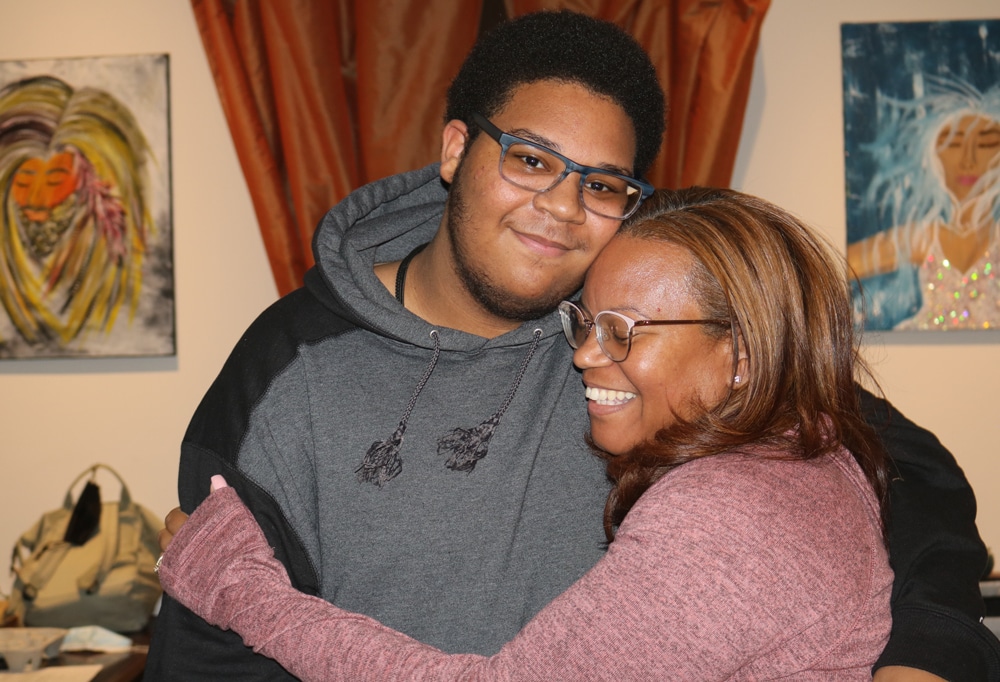
The Casey Foundation points out that Gen Z‑ers witnessed our country’s first black president and the legalization of gay marriage and are more likely to have grown up amid diverse family structures—whether in a single parent household, multiracial household, or household in which gender roles were blurred. As a result, they’re less fazed than previous generations by differences in race, sexual orientation, or religion.
Mental health challenges also are a characteristic of Gen Z, which has been referred to as the “loneliest generation,” because the countless hours they spend online can foster feelings of isolation and depression. More time spent on smartphones or watching Netflix means less time spent cultivating meaningful relationships. Gen Z kids also find their mental health affected by the turbulent state of the world. Gen Z‑ers often internalize the unrest surrounding issues like gun control, police brutality, and climate change, which lead to increased stress levels.
Empowering Our Youth
The Family Connection Collaborative is reaching out to more adults in the community who want to be a part of Courageous Conversations Rockdale, while empowering the youth who are already invested in this work. “The youth in our pilot program will conduct future sessions with other youth,” said Hutcheson.
The Collaborative also is gathering information on how to conduct an equity impact assessment and plans to conduct a community report card to evaluate how different sectors in the community reflect diversity.
“Having these courageous conversations over time will bring awareness to the deep-rooted biases within our communities that cause inequities for individuals,” said Nareene. “As we continue to work in collaboration with adults and youth, we know our findings will help further the development of a race equity impact assessment tool that will be helpful to us and other communities.”
The Casey Foundation, in partnership with Terry Keleher, thought leader and practice specialist at Race Forward, developed five questions to help communities begin a race equity impact assessment by addressing racial equity in their policies, practices, and decisions:
- Are all racial and ethnic groups that are affected by the policy, practice, or decision at the table?
- How will the proposed policy, practice, or decision affect each group?
- How will the proposed policy, practice, or decision be perceived by each group?
- Does the policy, practice, or decision worsen or ignore existing disparities?
- Based on your responses, what revisions do you need in the policy, practice, or decision you’re discussing?
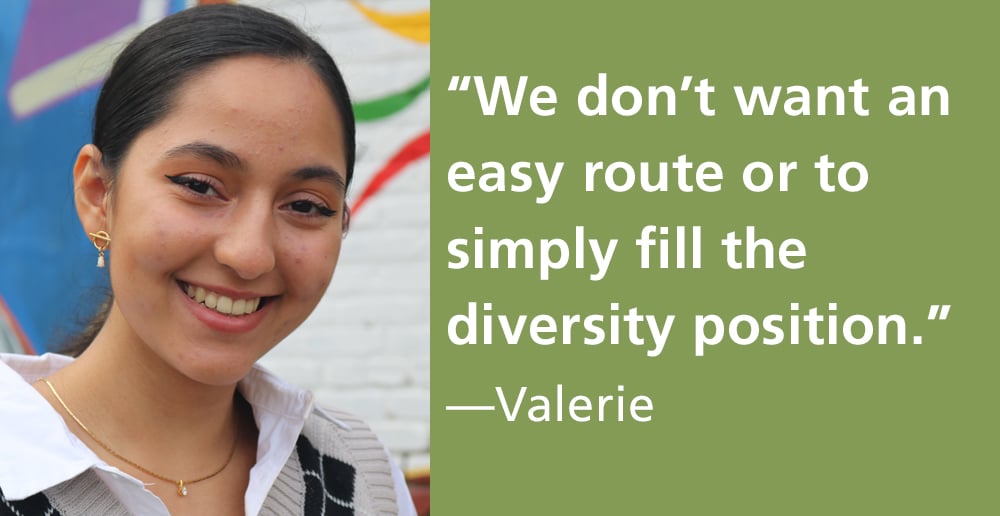
“What everyone here wants, what we all want, is to be treated the same and given the same opportunities—to be pulled over with the same intention,” said Valerie, a senior at Heritage High School. “We don’t want an easy route or to simply fill the diversity position. You have the right intentions, but you’re doing it for the wrong reasons. We need to educate ourselves on embracing our differences, understanding that all languages and knowledge of other cultures and experiences have value. They’re assets.”
Gibbons pointed out that she looks forward to engaging in more courageous conversations and exploring new perspectives, and that she’s seeing actions already manifest. “These young people are beyond their years,” she said. “I’m so grateful I can say we planted a seed of something that has already taken root. I’m proud of Rockdale, of the Taffes’ vision, and the opportunity that God gave us to bring together adults and youth and make a change in our community.”
To learn more about Courageous Conversations in Rockdale County, contact Michael Hutcheson at director@rockdalecoalition.org.
Read and share Expanding Our Perspective, Unlocking Our Potential—Georgia Family Connection’s 30-year impact report.
Contact:
Bill Valladares
GaFCP Communications Director
404-739-0043
william@gafcp.org
Follow us on Twitter: @gafcpnews
Connect with us on Facebook.
